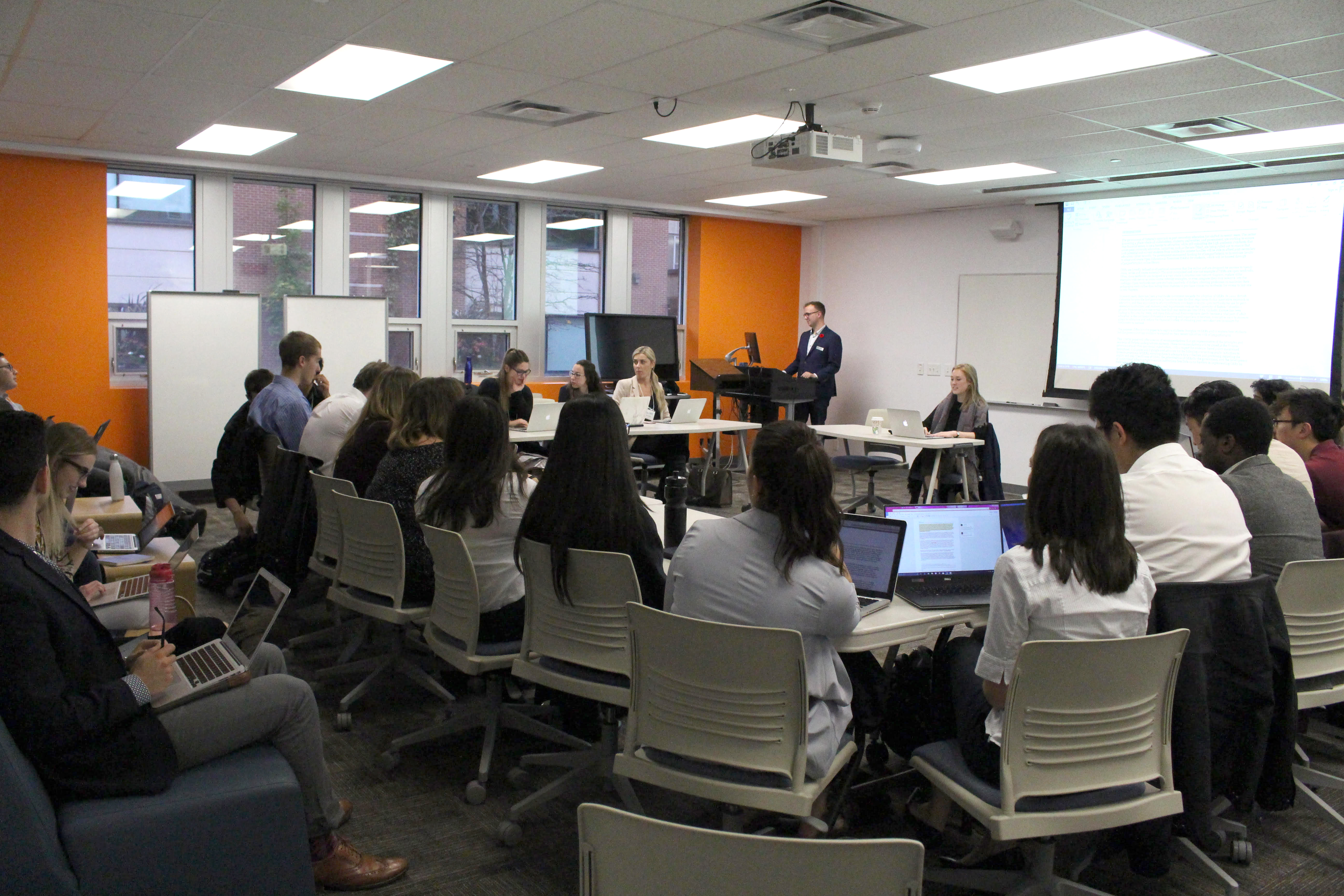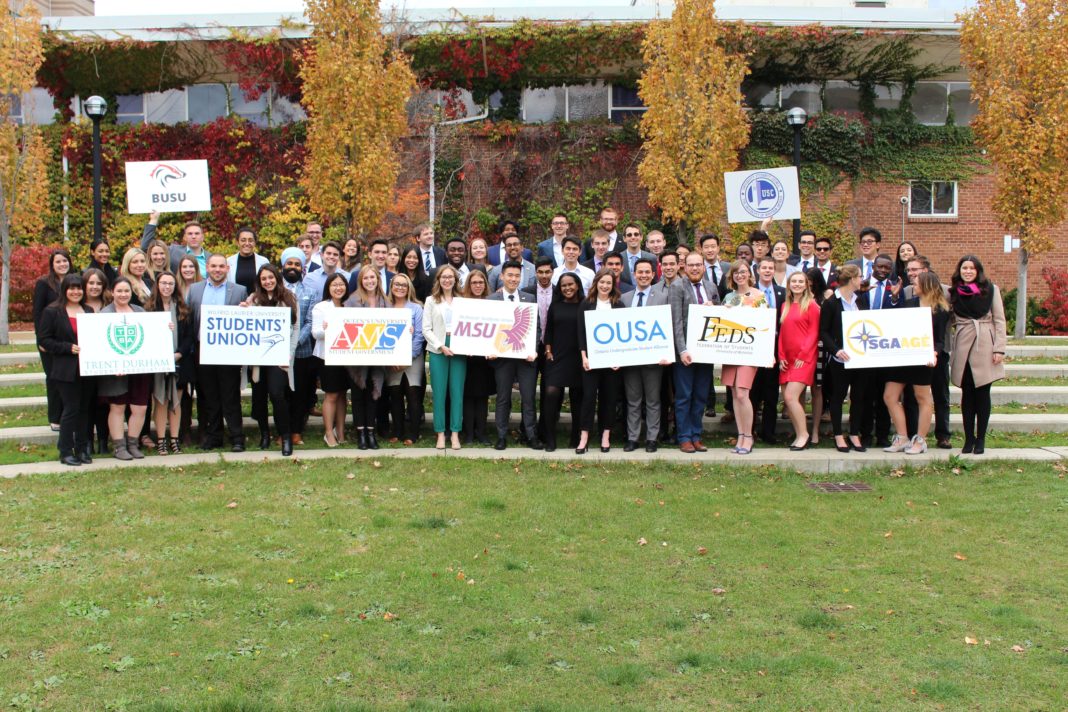Disclaimer: Matthew Gerrits was a delegate to the General Assembly in which these events were passed. He writes as a student, and not in any capacity on behalf of OUSA or Feds.
The Ontario Undergraduate Student Alliance (OUSA) recently released its policy paper on Indigenous students, the result of its fall general assembly at Laurier.
OUSA is an association of eight Ontario university student associations, including the Federation of Students. The body serves also as a provincial post-secondary advocacy organization, lobbying to the provincial government on policy issues concerning post-secondary students. Policies are written by student authors, with the research assistance of OUSA’s policy analysts, in advance of each general assembly.
OUSA general assemblies, held twice yearly, see delegates from the eight schools gather at one of the universities to deliberate on the policy papers, and vote on final changes before adopting them. Once passed, these policies stand for five years, and OUSA can officially use their resources to lobby for them.
This general assembly consisted of two days of breakout sessions and policy rewrites based on delegate feedback, followed by the formal plenary session.

Four policy papers were adopted this general assembly, on Indigenous students, system vision, accountability, and a one-year interim paper on open educational resources.
The Indigenous students paper contained policy on eliminating access and information barriers, increasing wellness of Indigenous students on campuses, and recognition of Indigenous culture.
This policy was adopted after some discussion about if the level of consultation could have been increased.
The system vision paper laid out OUSA’s requirements for any expansion or new Ontario universities or satellite campuses and its recommendations for university specialization, recognition of teaching, and for the university funding model.
The accountability paper was highly complementary to the system vision paper, addressing the importance of accurate and appropriate data reporting from universities, maintenance of infrastructure, university ombudsmen, and other measures to maintain a high quality undergraduate education in Ontario universities.
The open educational resources paper details OUSA’s support for the development of open-source textbooks to be available to educators across the province. Now the organization will continue to lobby to the provincial legislature and to policymakers for student interests.
Feds pays an annual fee of $3.04 per undergraduate student for membership in OUSA. The fee pays for OUSA home office staff and policy development.
Recent public policy changes that OUSA claims as part of its achievements are increases to mental health funding for students, changes to OSAP funding for students from low-income families, changes in OSAP debt collection, and increased government investment in experiential learning programs.

To see OUSA’s other policies, research, and news, visit www.ousa.ca.































